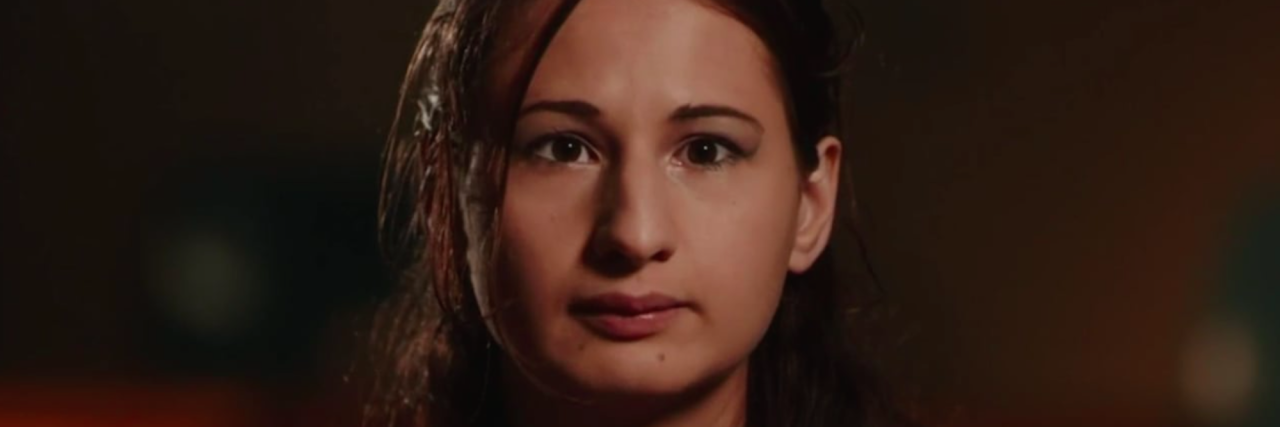Munchausen by Proxy Victim Gypsy Rose Felt Murdering Her Mother Was the 'Only Option' for Escaping Abuse
Editor's Note
If you’ve experienced domestic violence or emotional abuse, the following post contains descriptions of emotional and physical abuse that could be potentially triggering. You can contact The National Domestic Violence Hotline online by selecting “chat now” or calling 1-800-799-7233.
“I went from looking at her like a loving parent to seeing her as somebody that I was quite afraid of. I felt like there was no hope. I just kept thinking, ‘Dear God, get me out of here somehow.’”
These are the chilling words of Gypsy Rose Blanchard, from Investigation Discovery’s new documentary, “Gypsy’s Revenge,” which explores the circumstances that led Gypsy Rose to plot the murder of her abusive mother, Dee Dee Blanchard, in June of 2015.
You can stream the documentary for free here, but please be advised that the documentary discusses and contains dramatized reenactments of physical and emotional abuse as well as murder. If any of the aforementioned topics are triggering to you, please proceed with caution when reading this piece, as some graphic details are mentioned.
Gypsy Rose was the victim of Dee Dee’s alleged Munchausen syndrome by proxy (now called factitious disorder imposed on another), a mental disorder that leads a person to act as if the individual he or she is caring for has a physical or mental illness when the person is not really sick. Munchausen syndrome by proxy is considered a rare form of child abuse, and perpetrators are typically mothers.
Because Dee Dee is now deceased, there is no way to formally diagnose her, but Marc Feldman, M.D., clinical professor of psychiatry and expert on factitious disorders, was convinced the evidence in the case clearly pointed to Munchausen by proxy. He said a tell-tale sign in this case was that Dee Dee was seeking “some kind of emotional gratification” for herself. He said:
Dee Dee was a woman of fairly few accomplishments. There were fairly few things that distinguished her from your run-of-the-mill person, and that didn’t suit her, so having a sick child gave her a sense of identity, which was of the indefatigable, heroic caregiver who left others breathless with the excellence of her child-rearing.
In this case, Dee Dee convinced those around her that Gypsy Rose had cancer, muscular dystrophy and other illnesses. Gypsy Rose underwent multiple unnecessary surgeries, was forced to use a feeding tube and wheelchair (though she could eat and walk unaided) and was given medications for conditions she didn’t have. In the documentary, Gypsy Rose said she believed she had all the illnesses until much later when her attorney informed her that there was no medical record of her having any of them.
“I was happy to know that I’m perfectly healthy, but at the same time it hurt because it’s like my whole world had been tossed up,” she said. “I realized that my mother wasn’t who I thought she was.”
A central question the documentary seeks to answer is: Why did Gypsy Rose resort to murder before asking for help?
The answer, in part, has to do with the role of a parent in a young child’s life. As BuzzFeed reporter Michelle Dean put it, “Parents make your world” — and the world Dee Dee made for her daughter was an isolated one. In addition to keeping her chronically “sick,” Dee Dee told Gypsy Rose her only friend Aleah was a bad influence and said (falsely) that her father didn’t care about or want anything to do with her.
“I couldn’t just jump out of the wheelchair, because to be honest, I was afraid of what my mother might do and I didn’t think that I had anyone to trust,” she said. “If I had known then what I know now, I would have reached out to anybody for help, but I was too afraid to.”
On one occasion, Gypsy Rose succeeded in running away, only to be found and brought back by her mother. As punishment, Dee Dee smashed Gypsy Rose’s computer, chained her to her bed, starved her, hit her and called her names like “devil’s spawn.”
Feeling that she would only experience true freedom in life if her mother was no longer alive, Gypsy Rose began to plot her mother’s murder with her boyfriend, a man she’d secretly met on a Christian dating website.
“I felt, ‘How else am I gonna escape?’” It seemed like taking her out of the equation completely was the only option,” she explained.
Because Munchausen syndrome by proxy is so difficult to diagnose — the person making another sick may lie about symptoms, falsify medical records or even induce symptoms in the other person — not much is known about the long-term impact on victims. In one study of Munchausen syndrome by proxy victims, researchers found that in adulthood, subjects reported significant insecurity, trouble trusting their perception of reality, PTSD symptoms, avoiding medical treatment and complex emotions toward their abusers — ranging from anger to sympathy. The last is something Gypsy Rose experiences herself. She said:
I have a lot of complicated emotions for my mother. There are some times that I’m angry at her. There are times that I think she’s so manipulative, and ‘How could you do that to your child?’ and then I think about other times where I’m like, ‘She just was so desperate for somebody to love her,’ but regardless of all that, I still love her and I still miss her because she was my mother.
Gypsy Rose was sentenced to 10 years in prison and will be eligible for parole in 2024.
Header screenshot via Investigation Discovery

